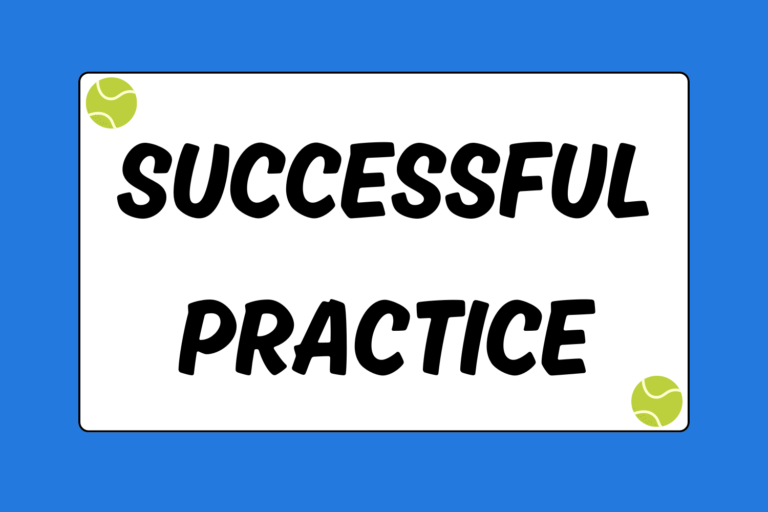Movies and television shows often portray the wrong image of team captains — even in tennis. In most cases, a team captain is stereotyped as the proverbial “big guy on campus” who bumps shoulders with anyone that dares step in his path. But this depiction is not true! Being a team captain involves a lot of behind-the-scenes effort and contribution. An honest portrayal of how he behaves is often left off the script; and it takes a whole lot more than a “C” on your chest to be a respected captain. So, what are the qualities of a good team leader? Read this guide and find out what it takes to become the captain of your tennis team.
A Good Attitude is Contagious
There are two qualities that make true captains stand out: Spirit and dedication. Teammates look up to high-energy players that genuinely care about the success of the team, no matter his talent level. Great motivators rally players together, boost the team’s confidence before a match, and openly communicate with every player on the team. Whether you’re traveling on the team bus or passing by one another in the hallway, the team captain knows how to raise a team’s energy levels and morale.
Again, team captains aren’t always the best players on the team. Teammates often marvel at supremely talented players, but they also respect a selfless and enthusiastic player who is hungry to win. Regardless of whether or not you’re in the starting lineup, show up to every match, cheer on your teammates, and offer advice to the players and coaches.
Stay as involved as possible, and never shy away from accepting responsibility. If your coach needs someone to organize a team meeting, jump at the opportunity. Better yet, arrange a team meeting on your own initiative — regardless of what your coach planned.
Hot Tip: Hit the Drawing Board
Don’t be afraid to make your voice heard during game plan discussions for an upcoming match. Offer any insight you have about your future opponent, and make suggestions about the matchups that might work best. Stay as involved in the process as possible, and don’t ride in the backseat when it comes to match preparation. Your coaches notice players that actively participate in important decision-making and group meetings.
Build Relationships
You have to spend the entire season with your teammates, so make that time as fun as possible. After all, sports are an enjoyable experience, and being a part of a team is extremely exciting. Even if your best friend since grade school isn’t on the team, spend some time with each of your teammates and make them feel like a valued comrade. You don’t have to be best buddies with every player, but you should be as active as possible in getting to know your teammates. Talk to everyone on the squad, hit with teammates you don’t know as well, and cheer on other players whether they’re winning or losing.
If you expect to become the team captain, each and every player has to feel comfortable approaching you. Build relationships with your teammates early on in the season, and make an effort to interact with them on and off the court.
Handling Conflict & Pressure
Every team, regardless of how many wins they pile up, experiences a few setbacks during the season. Whether it’s a losing streak, a debilitating injury, or an internal feud, most teams are tested in some manner. How you react to adversity, however, is crucial. Some players might hold personal vendettas or complain about coaching, but captains need to keep their cool. Conflict is a natural aspect of sports (and life for that matter), so don’t overreact when you hit a bump in the road. Focus on what you can do to make the team better, and set specific goals for your squad. Creating objectives helps players stay focused, and it gives your team a sense of accomplishment when those goals are met.
Many players struggle with pressure, such as a rivalry matchup or a must-win situation. A great captain, on the other hand, feeds off of an intense, high-pressure atmosphere, and uses this energy to motivate his squad. Go into the match loose, confident, and fearless, and infuse your teammates with the same energy and enthusiasm. Tennis is fun, so make it enjoyable for everyone around you. Great captains make their teammates feel at ease, but they also know how to make the players around them more energized and focused.
Walk the Walk
Ultimately, captains need to lead by example. You don’t have to be the best player on the team, but you have to carry your weight during matches. More importantly, you have to leave every possible ounce of effort and drop of sweat on the court. Players won’t listen to or trust a captain that doesn’t give it his all. Even if you’re losing matches, your teammates will support you if they know you’re working as hard as possible.
Spend extra time hitting with your teammates on the weekends, encourage players to lift weights together, and go for runs on your off days. You don’t appreciate teammates with lackadaisical attitudes, so hold yourself to the same standards. Team captains might not always be the star player, but they normally work the hardest.
Swing for the Moment
Being a good team captain boils down to leadership. You have to know how to deal with other people in times of upheaval and triumph. You don’t want players to get too down on themselves after a loss, but getting caught up in a victory can have an equally damaging effect. Either way, a captain’s voice is heard and he knows how to reach out to every player on the team.
Have fun with the game, and don’t try to unnaturally impose yourself on the people around you. Simply be yourself and focus on making improvements each and every day. Your attitude and determination alone will garner attention and praise.





